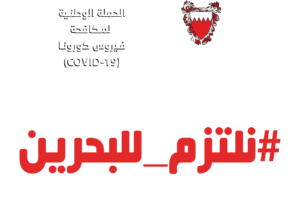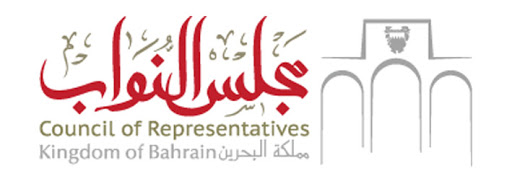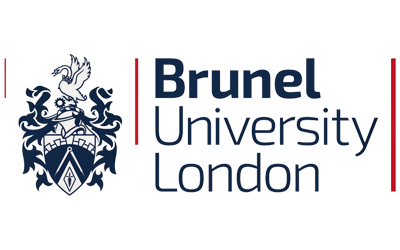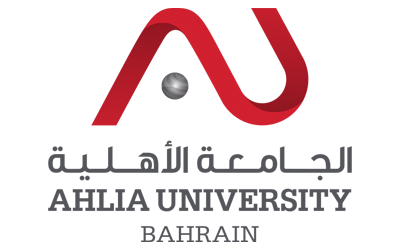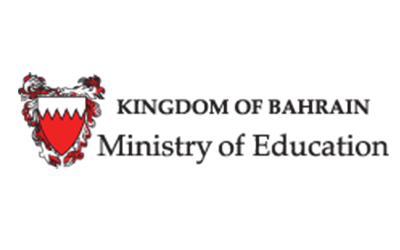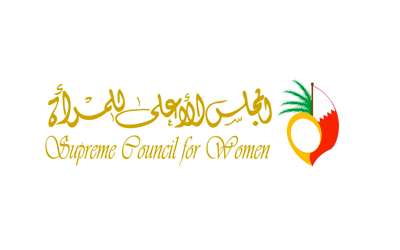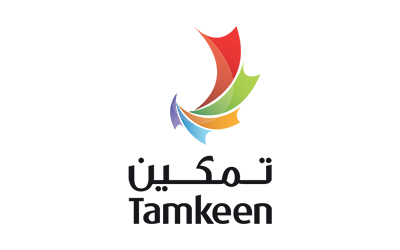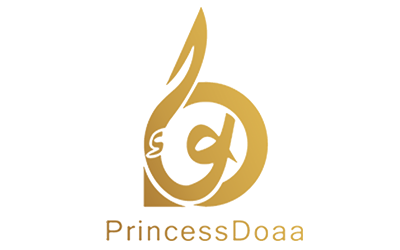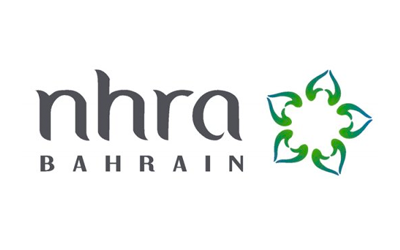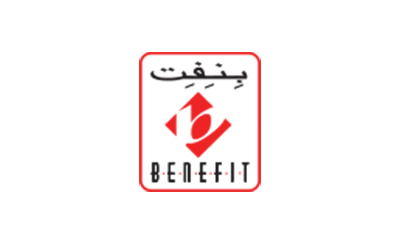2ND & 3RD OF DECEMBER 2020
4th Equal Opportunities
Conference
Under the patronage of H.E. Fawzia Bint Abdulla Zainal Speaker of council of Representatives.
It is our honor to invite you to the Fourth Conference on Equal Opportunities
CALL FOR PAPERS/PRESENTATIONS
4th Equal Opportunities Conference
Welcome Messages
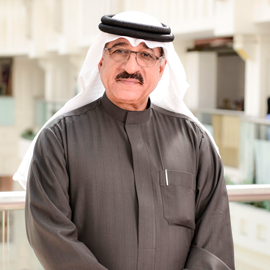
PROF. ABDULLA Y. AL HAWAJ
Founding President & Chairman Of Board Of Trustees - Ahlia University
PROF. ABDULLA Y. AL HAWAJ
WELCOME MESSAGE FROM THE FOUNDING PRESIDENT & CHAIRMAN OF BOARD OF TRUSTEES
It gives me great pleasure to announce that we are holding The Fourth Conference on Equal Opportunities in "Health, Education, Law and Business.” We are absolutely ecstatic to conduct this conference under the patronage of Her Excellency Mrs. Fawzia Bint Abdulla Zainal, the Speaker of the Council of Representatives, whose renown, as a pioneer in the cause of women’s empowerment, is widely acknowledged and recognized in the Arabian Gulf region and far beyond. Under her stewardship, the Council of Representatives indefatigably tackles and relentlessly drives women’s empowerment as part and parcel of its wider stimulation and development of communities and organizations as a core element of what uncontrovertibly ranks as society’s most important social cause.
This conference, organized jointly by Ahlia University and Brunel University London, is inspired by our mission to move forward the frontiers of human knowledge and to elevate the social and living standards of society. It is a demonstration of our core values in action and exemplifies our commitment to scholarship across various academic fields and disciplines.
The theme "Health, Education, Law and Business" was carefully selected as it goes to the heart of a transcendental and transformational issue of paramount salience in the world today; namely, women’s empowerment and female participation in human capital development. Promoting equal opportunity engenders benefits of far-reaching consequences – be they economic, social or otherwise -- impacting all aspects of society.
We are proud of, and heartened by, the path-breaking activities of the Supreme Council for Women under the leadership and guidance of H. R. H. Princess Sabeeka Bint Ibrahim AI Khalifa in furtherance of women’s empowerment. Given these efforts, it is unsurprising that the Kingdom of Bahrain has emerged as an unparalleled leader in equality between men and women. Using a cross-section of the latest scholarly methods, we accordingly strive to highlight and to reflect on the good practice evinced in the sphere of women’s empowerment in Bahrain. Moreover, the conference includes empirical studies about “Health, Education, Law and Business” in Bahrain involving a set of workshops employing cutting-edge methods in the field,
Finally, I offer my thanks to all the contributors of the conference and our distinguished guests, and would like to offer my sincere gratitude to the organizing committee who made this conference a success.
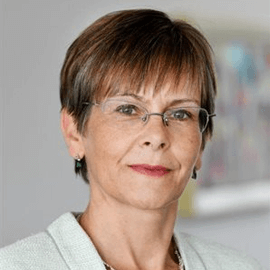
Prof. Mariann Rand-Weaver
The Vice Provost (Education} - Brunel University London
Prof. Mariann Rand-Weaver
WELCOME MESSAGE FROM THE VICE PROVOST (EDUCATION)
Since this conference last took place the world has changed – all because of a virus that until a year ago no one had heard about. Our lives are not the same, at home or at work, and social distancing, facemasks and sanitisers now define our existence.
The Covid-19 pandemic has brought into stark relief the inequalities that exist in our societies, including access to health care and education. In addition, those from disadvantaged communities have been at higher risk of infection and death; globally now standing at over 43.5 million cases and 1.1 million deaths.
Whilst we look forward to the day when life returns to something we can recognise as normal, there is also the realisation that we will be living with the effects of this pandemic for a long time. However, there is a desire to learn from what undoubtedly is one of the defining moments of humanity.
It is therefore fitting that this, the 4th Equal Opportunities Conference, seeks to explore how we can use the pandemic to advance equal opportunities and build a more equitable future for all. It would be easy to pause this work in face of such a terrible disease, but we must instead use it to accelerate our efforts. Bringing the conference online will create a more inclusive environment that also reaches beyond our two institutions – proof that there are some good things arising from our Covid-adapted lives.
I would like to thank the organising committee for providing the vision and leadership for what will be an exciting opportunity to exchange ideas and lay the foundation for a post-Covid world.
INTRODUCTION
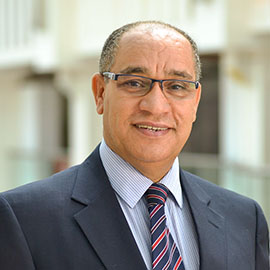
Prof. Mansoor Alaali
President of Ahlia University - Ahlia University
PROF. MANSOOR ALAALI
INTRODUCTION FROM AHLIA UNIVERSITY
For the second year, it gives us great pleasure to have the conference under the patronage of one of Ahlia University distinguished alumni, namely, HE Fawzia Bint Abdulla Zainal, Speaker of the Council of Representatives.
Ahlia University is continuing to hold the Conference in partnership with Brunel University London. The focus of this fourth Equal Opportunity conference is Health, Education, Law and Business. This conference is a further evidence of the successful partnership between Ahlia and Brunel which has so far produced over fifty PhD’s, joint published research and a wide variety of fruitful collaborations. Brunel University has persistently supported the conference by experts and speakers. This conference further serves Ahlia community engagement strategy which places Ahlia as an agent for change in the Bahraini society. It further supports the supreme council for women efforts and strategy to enabling women and paving the way for equal opportunity across all domains in Bahrain. The leadership of HRH Princess Sabeeka Bint Ibrahim Al Khalifa for the Supreme Council for Women has enabled Bahraini women to move forward and take their rightful place in Bahrain society at large and in the workplace.
This conference serves as a platform for presenting new developments in the field of Health, Education, Law and Business and for exchanging views and findings and paving the way for future progress in the field. Speakers from Brunel, Ahlia, from Bahrain and from around the region will present highly valuable papers and experiences which will create a forward-thinking environment to resolve certain challenges facing womens’ role in sustainable development and future studies.
I take this opportunity to welcome all speakers and participants in the conference. We have invited members from all the equal opportunity committees in the Ministries and leading organisations which will make the discussions more relevant and fruitful.
Finally, I want to thank the speakers, the participants and the organising committee for making this important event a success.
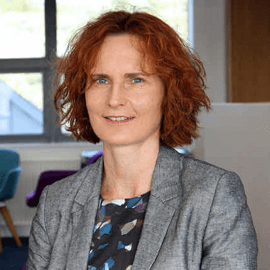
DR. MARY RICHARDS
Programme Director BACs Global Challenges - Brunel University London
DR. MARY RICHARDS
INTRODUCTION FROM BRUNEL UNIVERSITY LONDON
It is a great pleasure to welcome you to Ahlia and Brunel University’s 4th Equal Opportunities conference. While this year we meet online rather than in person, the desire to engage in debates pertinent to the promotion of equal opportunities is only heightened by the current global situation.
The crisis of Covid-19, like other systems-wide disruptors, presents extraordinary challenge to all people. The resultant lockdowns within nations and across the globe have highlighted the importance of having sufficient indoor and out-door space for physical and psychological well-being, physical distancing and quarantine.
The social, economic, environmental and health inequalities experienced by those living and working in conditions that did not provide scope for them to effectively protect themselves from the risks associated with Covid-19 have been thrown into sharp relief; those who do not have the opportunity to work from home/a safe space; those living with socio-economic disadvantage both being disproportionately impacted and represented in the numbers of people hospitalized or dying from the disease.
This conference aims to explore some of the diverse responses to the crisis that emerged at a local, national and international level, with a particular emphasis on how responses to the crisis have impacted on equal opportunities. We are here to share experiences, reflect on outcomes, develop our understanding and consider how best to contribute to the debates and take action to increase our resilience to this type of global challenge – a type of challenge that is likely to repeat itself sooner rather than later if effective systemic change fails to evolve out of this stark warning about our unsustainable relationship with the natural environment
Keynote speakers
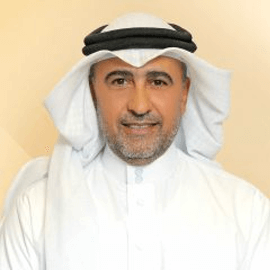
H.P MP Mr. Bader Aldoseri
Chairwoman deputy of the Standing Select Committee on Women and Children in Bahrain council of representative.
H.P MP Mr. Bader Aldoseri
Position
Chairwoman deputy of the Standing Select Committee on Women and Children in Bahrain council of representative.
Paper: Working paper on the Role of the Council of Representatives in Achieving Equal Opportunities between Women and Men amid Coronavirus "COVID-19"
This paper addresses the necessity of equality between men and women that was stipulated in the National Action Charter and translated in the Constitution of the Kingdom of Bahrain on empowering women, obtaining their rights, and regularizing the conditions in order for them to perform their duties between their families and work in the political, social and economic fields. Furthermore, this paper also includes the national legislations that affirms equality between men and women without discrimination.
In order to ensure the achievements of these provisions into a concrete reality, the royal directives and constitutional texts were transformed into institutional work through the establishment of the Supreme Council for Women (SCW).
In addition, this paper states the efforts of the Council of Representatives in the field of empowering and integrating women into policies, plans and budgets, through the legislative and oversight efforts and activities established in the field of achieving gender equality amid Coronavirus "COVID-19".
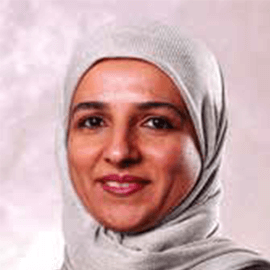
Dr Dunya Ahmed Abdulla
Strategic Planning & Development Adviser - Supreme Council for Women
Dr Dunya Ahmed Abdulla
Biography
Dr. Dunya Ahmed Abdulla Ahmed is an assistant professor and lecturer in the Department of Social Sciences at the University of Bahrain & Strategic Planning & Development Adviser in Supreme Council for Women. She has been working at the Supreme Council for Women, since 2010, as Director of Women Ombudsman Center, soon she was appointed as Acting General Director for Policies and Development & Director National strategy for the Advancement of Bahraini women in 2011, which is the core function of the organisation. Since 2015 she became Strategic Planning & Development Adviser, and continued to manage General Director for Policies and Development for period (2015-2018).
In addition, she is Scientific Committee Chairperson in the Institute of Inspiration Economy, EU & MENA. She completed her PhD in social work at the University of Warwick.
She is the first and only person hold a PhD in social work in Bahrain, specialized and concentrates mainly on equity and the rights of women and people with disabilities. She is co-founder of Inspiration Economy concept, Journals, projects & institutions globally.
She is also Editorial Board of several international scientific journal. In addition of being an active member of several NGOs & Chairperson of Inspiration Economy Society in Bahrain. She has also contributed to the preparation and implementation of a number of national strategies, and preparation and discussion of international reports.
Social Media Info
Paper: National efforts to support Bahraini women and families during the Covid-19 crisis
This paper will address impact of the Covid-19 virus on Bahraini women and equal opportunities specifically in the fields of health, education and business. Furthermore, the national efforts taken to address the equal opportunities challenges as a result of this crisis will be highlighted.
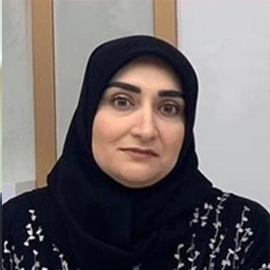
Dr. Jameela alsalman
Senior infectious disease consultant - Ministry of Health
Dr. Jameela Mohamed alsalman
Biography
- Associate professor in Arabian Gulf University
- Consultant in Infectious diseases and Consultant in geriatric medicine
- Chairperson of the secondary care committee for the geriatric care in MOH
- Chairperson of the HIV management team in MOH
- Chairperson of antibiotic stewardship program , Ministry of health
- Chairperson of the national antibiotic stewardship committee in Bahrain
- Previously Headed the infection control committee in the ministry of health for 5 years
- Head of the infection control In King Abdul University Hospital
Dr Jameela graduated with Honor form the medical school at Arabian Gulf University. Then she joined the Salmaniya Medical complex in 1996.
Dr Jameela went to United states and has completed her residency and fellow ship programs in the United states where , she finished the internal medicine residency in Eason , Hahnemann University, , Pennsylvania, USA , then she did a fellowship in geriatric medicine in Temple University in Pennsylvania, then did a fellowship in infectious diseases at Yale University IN New haven, Connecticut, USA.
Dr Jameela is triple American Board certifications: American Board in internal Medicine, American Board in geriatric Medicine, American Board In Infectious Diseases. Dr Jameela has the board in infection control and recently the American board in medical quality.
Awarded by His majesty the king for her achievements in improving the clinical services and for the achievement in the antibiotic stewardship program and received the medal of competency from his majesty in the national day of the kingdom December 2016.
Awarded for the program of antibiotic stewardship for the best governmental practices for 2016 by HE the prime Minister in kingdom of Bahrain in 2016.
She did also a special training for one year in HIV management and hepatitis c at Yale University. She also did a special training in infection control at Yale University.
She has many publications in the peer reviewed journals. She is involved in a wide range of educational activities .She received several honors and awards for her scientific contribution internationally.
She is a member in several Professional Society Membership:-, American College of physician ,Infectious Diseases Society of America . Dr Al-Salman holds membership of the Bahrain Medical Society and the Saudi Society of Infectious Disease and Infection Control.
Social Media Info
Paper: COVID 19 , gender equality and Health
COVID 19 and gender equality in the health system.
The healthcare sector is facing unprecedented pressure. Healthcare workers are at the frontline of the Covid-19 pandemic and they are working around the clock, putting themselves and their families at risk to care for patients.
Although both women and men working in this sector are exposed to the virus, women are potentially more at risk of infection because for example they make up the majority (76 %) of healthcare workers in the EU.
- Gender segregation in the labour market leads to different levels of exposure to Covid-19 for women and men.
- Increased challenges to occupational health and well-being of women in caring professions need to be recognised.
- It is crucial to consult women and have gender-balance in decision-making during crisis situations.
In general:
- Recognising the different extent to which disease outbreaks affect women and men is a fundamental step to understand the effects of a health emergency on different individuals and communities, and to create effective, equitable policies and interventions.
- Experience from past pandemic outbreaks show the importance of incorporating gender analysis into the preparedness and institutional response to improve the effectiveness of health interventions and promote gender and health equity goals.
- Medical research and health services that address the impact of both sex (biological factors) and gender (social factors) on the health differences of women and men would help to better serve their individual health needs.
- Increasing the representation of women in health governance, decision-making and certain occupations (e.g. senior doctors, professors or researchers) could help to ensure that women also have an opportunity to shape important healthcare decisions.
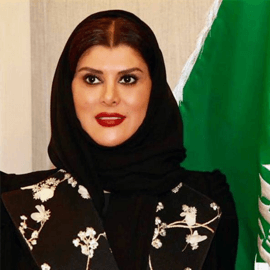
H.R.H. Princess Doaa M. Ezzat
United Nation's Peace Ambassador for Children and Youth Leading philanthropist and patron of the Arab culture and community Head of Presidents of the Arab Women's Organization - Kingdom of Saudi Arabia
H.R.H. Princess Doaa M. Ezzat
Position
United Nation's Peace Ambassador for Children and Youth Leading philanthropist and patron of the Arab culture and community Head of Presidents of the Arab Women's Organization
Biography
Princess Doaa is among the prominent women working towards the prosperity and goodwill of KSA with having master’s degree in Business Management, a master’s degree in International Politics and honored with Ph.D. in Law, Princess Doaa is the Founder & Owner of Friends Zone Academy, Head of Presidents of the Arab Women's Organization, Ambassador of Peace for Children and Youth of the United Nations and playing role of active member in several charity organizations that support children, education and medical treatment Jeddah, KSA. Princess Doaa is one of the leading pioneers in community, charitable and humanitarian work and an influential figure in the Arab World, She is supporting pediatric cancer patients, orphans, and the elderly, as well as supporting community relations for sustainable development.
Paper: Education Challenges during COVID 19
Islam gave women their status and made them partners with men in many rights and duties, taking into account their composition and role in life. Equality appeared in the Islamic religion, represented in many verses and rulings from the Holy Qur’an, for example: Knowledge is an obligation for every Muslim man and woman. We all know education is of great importance in human life, and in the child in particular. The student spends most of his time in his school, which motivates him to establish social relations and learn life skills, which supports his social behavior as an individual in society in addition to his sports activities, which maintains his physical health. Closure of educational institutions due to the pandemic has negative repercussions on the education process and on students of various stages. Distance education is not suitable for everyone, especially to those that do not have access to Internet technology. Children under 7 years of age are very difficult to receive from distance education because the educational process for that group is accustomed to education through play, behavioral and manual activities, colors, combinations, etc. Among the negative effects are psychological on children caused by social isolation, as social communication is very necessary to build the child's personality and develop with his peers and friends of the same age at school. The inability of many parents to provide support and assistance to their children due to their lack of preparation and lack of experience to play this role, which leads to a lack of understanding of the school content as required.
All these points will inevitably lead to the weakness of the education process and its primary role in building and developing the human being in addition to increasing poverty due to the decline of the economy, which will affect children from malnutrition and increase in diseases due to the lack of vaccinations and treatment. So we must be aware of every crisis its advantages and disadvantages and view the crisis positively, we must learn from what happened to find and study ways to deal with crises steadily and robustly in addition to increasing investment in education and focusing on it, children's health and joining efforts with civil society And finally, to return to receiving education in schools and educational institutions, while taking all safety and health precautions and methods for children and students, and ensuring that future deliberate plans are drawn up to adapt to new situations and reduce their negative effects.
Presentation
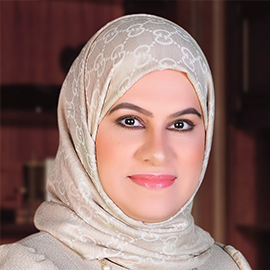
Dr. Farzana Al-Maraghi
Director of Scientific Research - Higher Education Council
Dr. Farzana Al-Maraghi
Biography
Dr. Farzana Al-Maraghi is the Director of Scientific Research at the Higher Education Council, Kingdom of Bahrain. Prior to that, she was the Head of Academic Accreditation at HEC. She has academic experience for around ten years, teaching Mathematics, Research Methodology, and Applied Statistics. Dr. Al-Maraghi earned her PhD in Statistics and Operations Research in 2008 from Brunel University. Her PhD research focused on Queueing systems. She holds a Master in Education, specifically, Mathematics Curricula Development, and a Bachelor of Science in Mathematics, both with Excellence and honor classes, from the University of Bahrain. In 2012, she accomplished a professional certificate in Leadership from Said Business School, University of Oxford, UK. She is IBM certified specialist for using the Statistical Product and Service Solutions Software. Dr. Al-Maraghi published several articles in the area of statistics in international refereed journals, and served as a referee as well. She has conducted many nation-wide researches mostly in the education sector. She also was accredited by the British Psychological Society, talentQ and HayGroup as ability and personality tests user.
Social Media Info
Paper: COVID-19 Pandemic and Gender Equality: A Global Perspective
Nations worldwide have put tremendous efforts to bridge the gender gap in education and workplace, however coronavirus (covid-19) pandemic, created a new challenge facing gender equality. This paper will highlight how this pandemic extremely affected women in different fields, such us, education in terms of working hours, job losses and home care burdens.
An overview of statistical data will be presented that show how women in different sectors was negatively impacted. For instance, in education, around 132 million girls, about 1 in 5 across the world are out of school. While as employees, women’s jobs are 1.8 times more vulnerable than men’s jobs.
According to Harvard Business Review and Mckinsey, gender inequality has negative impact on global Gross Domestic Product (GDP) therefore, immediate actions should be taken. It is estimated that not taking any actions will cause global GDP to be $1 trillion lower, while immediate actions could add $13 trillion to global GDP. In the Kingdom of Bahrain, statistics reflected that the Kingdom succeeded in lowering the gap between gender in education as the percentage of dropout students from HEIs for academic year 2019/2020 was 0.35% and of which 43% were females.
Some actions to mitigate the potential negative impact of COVID-19 pandemic upon gender equality in different sectors are discussed in the paper, along with recommendations for Bahrain.
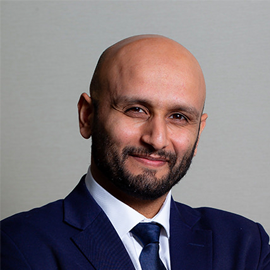
Dr. Omar Al-ubaydli
Director, Studies and Research – Derasat
Dr. Omar Al-ubaydli
Position
Director, Studies and Research – Derasat
Biography
My primary affiliation is the Director of Research at the Bahrain Center for Strategic, International and Energy Studies, a think tank based in Bahrain. I am also an affiliated associate professor of economics at George Mason University, a US university, and an affiliated senior research fellow at the Mercatus Center, a US think tank based in Washington, DC. I worked full-time at both institutions for five years. I have also been a Visiting Professor of Economics at the University of Chicago. I earned a BA in economics from the University of Cambridge, and a MA and PhD in economics from the University of Chicago. While living in the US, I served as a member of the Commonwealth of Virginia's Joint Advisory Board of Economists, and since relocating to Bahrain, I have served as a member of the Higher Education Council Research Taskforce, and the National Education Council Skills and Innovation Steering Committee. In the economics domain, my primary research interests are political economy, behavioral/experimental economics, the economics of the Gulf Cooperation Council countries, and the economics of science. I have numerous peer-reviewed publications in international journals, and my research has been covered in mainstream media outlets, such as the Economist magazine and the Newsweek blog. I also regularly write newspaper and magazine articles in outlets such as Al-Hayat newspaper and Newsweek ME, and journalists in a wide variety of outlets quote me when analyzing economics news.
Social Media Info
Paper: The impact of Covid-19 on female-male inequality: Bahrain vs. the UK and US
The impact of Covid-19 on female-male inequality: Bahrain vs. the UK and US Traditionally, the adverse economic impacts of recessions are borne disproportionately by men, with wage gaps and other measures of female disadvantage shrinking. In the UK and US, during the Covid-19 pandemic, this phenomenon has been reversed, with women suffering greater economic losses than men. Yet in the Kingdom of Bahrain, among nationals, the traditional pattern has held. This paper explores the reasons for this difference, and proposes ways of further eliminating female-male inequalities.
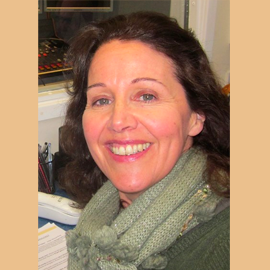
Dr. Josephine Coleman
Lecturer in Media and Public Relations - Brunel University London
Dr. Josephine Coleman
Biography
As a Geography graduate from Cambridge University, Josephine first worked as a promotions and PR Executive for an independent local radio network across central and southern England before joining Jazz FM in London. She later became a BBC local radio broadcast news journalist and presenter, having trained for several years in community media both in the UK and in the USA. After that she worked as curriculum coordinator at the National Film and Television School in Beaconsfield for the MA course on Documentary Direction. She then conducted a practice-based PhD in community radio production at Birkbeck, University of London, where she also tutored in media theory. Jo is former Chair of the MeCCSA Radio Studies Network and currently looking after their publicity and social media.
Qualifications
PhD in media and cultural studies, Dept of Film and Screen Media at Birkbeck, University of London. Practice-based thesis entitled: Talk of the Town. Exploring the social site of local content production for community radio.
Social Media Info
Paper: Gendered social sites of community radio practice: digital technologies and COVID-19
This paper discusses equal opportunities in the practice-arrangements of community radio stations in the UK. In this country’s mainstream radio industry, women account for 51% of the workforce covering off-air roles such as engineering and administration, and on-air such as journalism and presenting (Ofcom, 2018). However, men account for 81% of board level, technical and engineering roles whereas women outnumber men in marketing (70%) and support (66%). My recent research into community radio production practices, including an online study exploring responses to COVID-19, indicates that gendered hierarchies within this volunteer-led sector also persist (Coleman, 2020). Programme schedules and boardrooms are dominated by middle-aged, white men. 79.5% of station leaders who responded to my online survey were male; over half of them (52.3%) were aged between 51 and 70, and a further 34.1% were aged between 31 and 50. As for ethnic diversity, my respondents were overwhelmingly white (86.4%).
Failure to ensure diversity within a community radio station has implications for how the normative ideals of alternative, participative media are attained: community radio should be done not only for, but by and with its target audiences. My research suggests that innovations relating to digital technologies can help redress this. Having surveyed and listened to stations during lockdown, mostly operating from makeshift studios in practitioners’ homes, I gained insights relating to what steps had been taken to sustain broadcast outputs compared to their normal organisational structures and programming arrangements. There were signs of inequalities in terms of access to the requisite resources enabling volunteers to continue contributing content, but different experiences were reported across the country. Overall, the volunteer-led workforce was living up to their reputation for resilience and resourcefulness in providing news updates and entertainment to lift the spirits, rallying morale and facilitating neighbourhood assistance networks.
Social distancing measures are impacting all aspects of society and community life, from education to business, entertainment to healthcare. But my research demonstrates that community radio stations, fuelled by the goodwill and commitment of local citizens, have risen to these challenges. I conclude that the application of digital technologies can enhance equal opportunities in community radio, which in turn increases the sector’s ability to deliver social gain with public service purpose.
References:
Coleman, J. (2020) UK community radio production responses to COVID-19. Available at: http://bura.brunel.ac.uk/handle/2438/21156.
Ofcom (2018) Diversity and equal opportunities in radio. Monitoring report on the UK radio industry. Ofcom. Available at: https://www.ofcom.org.uk/__data/assets/pdf_file/0025/114829/Diversity-in-radio-2018.pdf.
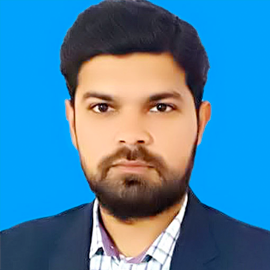
Dr. Sohaib Mukhtar
Assistant Professor, Law Department, Bahria University Islamabad - Pakistan
Dr. Sohaib Mukhtar
Biography
Acquired Doctor of Laws Degree from National University of Malaysia and Master of Laws Degree from International Islamic University, Islamabad, Pakistan.
Life member of Islamabad High Court Bar Association and Islamabad District Courts Bar Association.
Over 6 years of research experience and over 3 years of teaching experience in the field of law.
Have written various research papers on different topics of law published in renown journals as well as presented plenty of conference papers.
Paper: Covid-19 And Gender Inequalities In Pakistan
COVID-19 affected women more than men throughout the world especially where working women ratio is higher but in Pakistan women are not directly affected as married women in Pakistan are dependent upon their husband and unmarried women are dependent upon their father or elder brother. COVID-19 spread throughout Pakistan and affected poor labour workers of Pakistan adhering the situation the Prime Minister of Pakistan instead of locking down the whole country used smart lock downs to allow poor labour workers of Pakistan to earn livelihood for their women and children. Literacy rate of Pakistani women is less than 50% as male domination, conservative and traditionalist mind sets are hurdles in women empowerment in Pakistan which cannot be achieved without providing proper education to women in Pakistan. It is true that the Government of Pakistan failed to create friendly atmosphere for women to participate in all spheres of life as are guaranteed under article 34 of the Constitution of Pakistan 1973 which states that the Government of Pakistan will ensure full participation of women in all spheres of life but there are misconceptions regarding gender inequalities in Pakistan that this is because of religious mind set which is totally incorrect as majority people of Pakistan are Muslims and Prophet Muhammad ﷺ stated that education is compulsory for every male and female without discrimination thus negative propaganda against Islam needs to be removed and it is a time to help and support positive steps taken by the Government of Pakistan to manage inequalities and promote gender equalities as guaranteed under article 25 of the Constitution of Pakistan 1973 that every person is equal before Pakistani law without discrimination as to sex, race, religion, residence, and place of birth. The Government of Pakistan has almost overcome the spreading threat of COVID-19 by Civil and Military cooperation and hopefully will take positive steps for overcoming gender inequalities exist in Pakistani society and create friendly environment for working women in Pakistan to work outside house without fear. This research is an analyses and examination of COVID-19 threat to the Government of Pakistan and its impact on women in Pakistan as well as this research is an analysis of gender inequalities in Pakistani society which needs to sort out to allow women participation in all spheres of life without discrimination as are guaranteed under Pakistani Law and Islamic Law as prescribed in Holy Quran and Sunnah of Prophet Muhammad ﷺ.
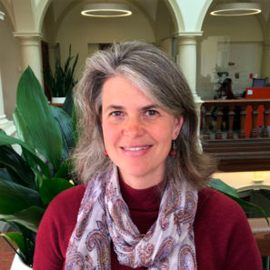
Dr. Jennifer Cole
Research Fellow - Royal Holloway University of London
Dr. Jennifer Cole
Position
Research Fellow, Royal Holloway University of London and Northern European Regional Hub Coordinator, Planetary Health Alliance
Biography
Jennifer Cole is a biological anthropologist interested in how humans influence and adapt to changing environmental conditions, particularly in the context of the human-induced changes of the Anthropocene. She is based in the Geography Department at Royal Holloway, University of London, which sits within the School of the Environment and Life Sciences. Her key research interests are in Global Health, human evolutionary and population biology, including how we have adapted to live in modern environments, how modern conditions affect our health across the life course, and the risks posed to health when healthcare systems are disrupted or overwhelmed by conflict, disasters and emergencies. She is interested in resilience at individual, community, national and international levels. She studied Archaeology and Anthropology at Cambridge University, then worked in publishing for 15 years before joining the National Security and Resilience Department of the Royal United Services Institute for Defence and Security Studies (RUSI), a policy think tank working closely with UK government including the Cabinet Office, MoD, Home Office and Foreign Office. From 2007-2017, she ran the Resilience and Emergency Management programme. Between 2013 and 2017, she undertook a PhD into health information during the Ebola crisis. She retains an interest in how health information is sought out, shared and trusted during health emergencies, including over peer-to-peer platforms
and social media, and how relevant scientific information and advice is communicated from the authorities to the affected population, then moved to Oxford University for a year to work for the Rockefeller Foundation Economic Council on Planetary Health before returning to Royal Holloway in 2018.
Social Media Info
Paper: Gendered spaces of COVID19
COVID19 has had a markedly different impact on men and women. Across the world, men and women are at equal risk of contracting COVID19 but are more likely to progress to severe illness and more likely to die, particularly in older age groups. The reasons for this are not yet entirely clear but are thought to include genetic differences, such as in the male and female immune system, and behavioural differences such as higher rates of smoking in men and higher compliance with avoidance behaviours such as face coverings and handwashing in women. A second issue around gender issues for COVID19 is the changing nature of family and home environments in the developed world. In many European countries and in North America, the numbers of deaths recorded in care homes was high, suggesting that this mode of caring for the elderly raises particular vulnerabilities; however, spread in multi-generational households has also been a major concern, suggesting that more traditional family structures may offer no greater protection to the vulnerable. This presentation will explore the different impacts gender has had on vulnerability to COVID19, and the implications this may have on gender roles, particularly within family structures, in future.
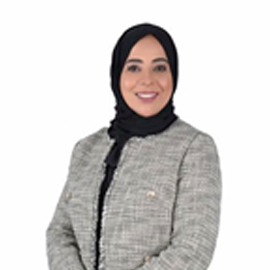
MRS. NAMAT AL SUBAIE
Advisor Allied Medical Profession - National Health Regulatory Authority
Mrs. Namat Al Subaie
Position
Quarantine Manager – MOH
Consultant / Advisor Allied Medical Profession, National Health Regulatory Authority
(NHRA) kingdom of Bahrain
Biography
Consultant Namat Alsubaie has completed BSN, College of Health science- Bahrain (CHS).MSc Quality Health Care Management, Royal collage surgeon, Ireland (RCSI), Diploma in sick children (Dublin- Ireland) diploma in community health science (CHS-Bahrain ) get certificate for cupping therapy from Sharjah International Holistic Health Center, also she is certified Auditor and Jurisdiction Officer at NHRA.
-She gained a comprehensive experience in alternative medicine through searching regulating alternative medicine different professions. Currently she is chairperson for the Advisory Committee on Licensing of Alternative Medicine and Complementary Medicine Committee and Equal Opportunity Committee (Supreme Council of Women (SCW) Bahrain and GCC Alternative and Complementary Medicine Committee, as well as discipline committee for Nurses and Midwifes, since 2015 till now.
-The biggest achievement when She took over since Nov 2015 to regulate the alternative medicine in the kingdom of Bahrain by issuing Resolution no (33) of 2016.
-The owner of the idea of issuing a permit license for the Bahraini traditional cupping since October 2017.
The second big achievement ,that raise the level of awareness in NHRA about equal opportunity through different project with collaboration with private hospital in the kingdom.
The major achievement to give special training to the volunteers ( male ,female) in hidd quarantine to fight the covid 19 vires since the epidemic started in the bahrain, and distribute the expertise from them to other isolation centers.
Social Media Info
Paper: Corona fighter Together we win
Volunteering is the main concept of humanity and nobody has made it through life without somebody’s help. However, volunteering is the main voice of persons put into an action form and grows present into future of which we can be proud of
We can beat it together. The Covid19 pandemic showed us that we can fully believe in our leadership and we can trust them to lead us throughout the way to fight this vicious virus
Through coronavirus crisis our leadership showed how thoughtful and supportive they are when it comes to fight this
As we stand up all together, we followed the leads and we start up our quarantine divisions as soldiers to fight an unseen enemy which we still do with open heart and positive minds
Moreover, the COVID-19 pandemic is not just a health issue. It is a reflective tremor to our societies and economies, unpredicted visitors to our life effecting all humanities including men women and children
However, women are at the heart of care and response efforts underway.
As front-line responders, health specialists, community volunteers, transport and logistics administrators, scientists and more, women are making critical contributions to address the epidemic every day.
Additionally, when it comes to COVID-19–related economic effects Women are more vulnerable due to gender inequalities
According to UN women they estimate that female job loss rates due to COVID-19 are about 1.8 times higher than male job loss rates globally, at 5.7% versus 3.1 % respectively. However, women make more than 70% of all health and social-services staff internationally. Due to this the majority of those on the front lines of the covid-19 pandemic are women. So, we instantly need to empower these women
Addition to that, this year marks the 25th anniversary of the United Nations 4th World Conference on Women Which we addressing the right lessons from the COVID-19 catastrophe, which demands that we take a hard look at how we value and pay for women’s contributions to health care, social services, and the economy
Overall, these are some points to be addressed
Given that the COVID-19 crisis affects men and women in different ways, measures to resolve it must take gender into account. For women and girls, vulnerabilities in the home, on the front lines of health care, and in the labor market must be addressed.
Must recognize that women will play a critical role in determining the crisis, and that measures to address the pandemic and its economic outcome should contain a gender viewpoint.
We will apply our full resources and capabilities in protecting and empowering the rights of all women and girls. That is what we do and who we are, as a leader, mobilizer, provider of programs, and partner for change
The challenges are large, but as we build bonds and bring societies together to set an agenda for equality, not impossible
It is crucial that underlying gender equalities are important by this crisis. As observed in covid-19 pandemics, women are -and will be- excessively affected in myriad ways
Finally, hope is the only stronger thing than fear which means that we will survive covid19 together by holding the positive energy around us
Here in our quarantine unit we know that in every crisis, hesitation or confusion, we should take the higher path - the path of consideration, bravery, thoughtful and love.
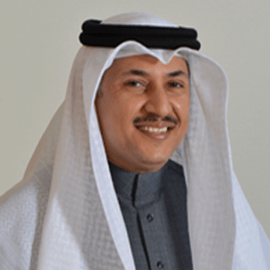
Mr. Yousif AlNefaiei
Deputy Chief Executive – Business Development & Services - BENEFIT
Mr. Yousif AlNefaiei
Position
Deputy Chief Executive – Business Development & Services at The BENEFIT Company.
Biography
Mr. Yousif AlNefaiei Deputy Chief Executive – Business Development & Services at The BENEFIT Company. Joined BENEFIT on March 30th, 2006 and have held many senior positions ever since. He holds a Master’s Degree in Information Systems from the Brunel University of London in the United Kingdom and a BSc in Computer Science from the University of Bahrain.
Mr. AlNefaiei has a total of 25 years of experience in the information technology and banking industries. He is a well-driven and solutions-focused professional equipped with experience spanning Corporate Strategy development, Organizational Budget Planning and Administration, Retail Banking Innovative Digital Solutions, E-Banking & E-Commerce Business Developments, Cards/ATMs/POS/Mobile Products Developments, Innovative Mobile Banking and Digital Payments, Cross Border Remittance Development, 3rd Part Processing and Outsourcing in Banking IT and Operation, Information Systems and Project Management, Banking Business Support and Operation functions, with a focus on customer-centric innovative solutions and efficient distribution channels.
In his capacity at BENEFIT, he is a major player in drafting the 3 years Corporate Strategy. He was responsible for supervising the Electronic Funds Transfer System (EFTS) project with 3 major services Fawri, Fawri+ & Fawateer. Moreover, He managed BenefitPay team as a National Mobile wallet using QR 7 NFC payments, and also led BENEFIT’s team who developed Electronic Cheque Processing and Clearing System.
Prior to being Deputy Chief Executive at BENEFIT, he has held leading positions in SINNAD Company, BBK, University of Bahrain and Bahrain National Guard.
Social Media Info
Paper: Digital Transformation during Covid19 indicators from BENEFIT experience
With the pandemic beginning to spread throughout the world, both the business sector and consumers began to adapt to this new situation and to search for the best solutions and practices that would enable them to continue to do so in the services of shopping, selling and buying. In this presentation, we review the experience of the BENEFIT Company in dealing with major transformation in the society and consumer behavior towards electronic payments in various sectors. The presentation will give statistical highlights in many of our services that state consumer rise habits toward digital transactions.
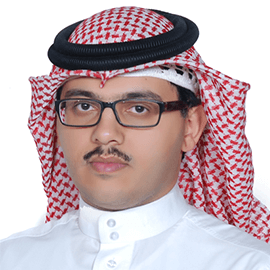
Mr. Ali Ahmed Alwedaie
Head of Legal Research Department - Council Of Representatives
Mr. Ali Ahmed Alwedaie
Position
Head of Legal Research Department.
Biography
Holds a master's degree with distinction from the Kingdom University and a bachelor's degree from the University of Cairo, worked as a lawyer at Lulwa Al-Awadhi Law Firm, Legal Consultancy and Arbitration, a former member of the faculty at the University of Bahrain on a part-time work system, and a lecturer at the Bahrain Center for Parliamentary Studies and Training,
He was acting head of the legislative and oversight tools section in the Council of Representatives. He also worked as the head of the preparation, follow-up and documentation department in the Parliamentary Division. He also assumed the duties of the Acting Director of the Legal Affairs Department. He has many legal studies and parliamentary research, and he has participated in many training programs inside and outside Bahrain in many parliaments. Around the world, he is a member of the editorial board of the Journal of Legal Studies, a member of the Community Communication Committee, a former member of the House Appeals Committee, and a former member of many parliamentary forums committees.
Paper: The Council of Representatives efforts and achievements in confronting the outbreak of the emerging Coronavirus (COVID-19) pandemic
This study addresses the efforts of the Council of Representatives in the Kingdom of Bahrain, in addressing the outbreak of the emerging Coronavirus (COVID-19) pandemic by highlighting the efforts of the Council in the field of legislation, health care, education, electronic services, economic and financial aspects and the field of diplomatic work. In addition, the efforts of the General Secretariat of the Council of Representatives
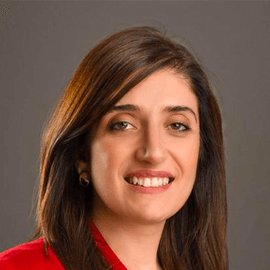
Ms. Emma AlMansoori
Director, Strategy and Planning- Tamkeen
Ms. Emma AlMansoori
Position
Director, Strategy and Planning- Tamkeen
Biography
a Bachelor’s Degree in Accounting from University of Bahrain and is also a Certified Accountant(CPA) and a project management professional(PMP). Emma worked in several organizations before joining Tamkeen including Court of the Crown Prince, Bahrain Olympic Committee, Banyan Non-Profit Management(Canada) and Manulife Financial(Canada).
Emma is the Director of Planning and Strategy – Tamkeen since June 2020. She is also on the board on Bahrain Entrepreneurship organization and the Bahrain Development SME’s Society Emma graduated from the University of Bahrain with a Bachelor’s degree in Accounting and has worked in the field of Accounting and Finance for over 20 years, both in the Kingdom of Bahrain and in Canada. In addition to her Bachelor’s degree, Emma has a Professional Certification in Public Accounting (CPA) and Project Management (PMP).
She is the Founder and Managing Director of Empower Business Solutions and has been assisting startups in both accounting and business consultations since 2013
Paper: How can we convert a short term emergency response to enduring structural change.
The COVID-19 pandemic has exposed several vulnerabilities in both the labor market and broader economy. However, it has also revealed the potential of digital technologies and agility to contribute to business continuity, resilience and sustainability.
What this pandemic period has further stressed, is that the global economic landscape is changing and we may not be prepared for it. While the growth in the number of enterprises has been a positive indicator it is also concerning that businesses have not grown in size nor has their productivity increased significantly. If businesses do not adapt, they are vulnerable and unable to catch up to the demands of a changing economic landscape.
The situation, however, presents an important opportunity. The pandemic has allowed a global experiment to take place. It has demonstrated that certain changes the market has been resistant to or have been limited in adopting, are now the path to resilience and continuity.
If more is done to capitalize on this opportunity it could lead to greater labor market inclusion and greater opportunities for growth. In particular we are presented with four key opportunities:
• Innovative disruption
• Business model overhauls
• Substitution
• Flexibility
The first two opportunities relate closely to the role of businesses in the economy. While for most enterprises the pandemic has been a serious constraint, others that have demonstrated an ability to innovate and attempt to tackle relevant economic problems, are those that have been able to survive better and perhaps thrive under current conditions. This innovative disruption in the market which is usually driven by newer and more adaptable firms creates new sources of employment and financial sustainability. Similarly, businesses that have committed to overhauling their way of operating to focus on productivity and greater efficiency have turned this challenge into an opportunity. Examples such as embracing digital technology, cloud-based solutions or renewable energy has allowed enterprises to do more with less. Not only has this allowed them to cope with the current situation but also puts them at a greater advantage when the current situation subsides.
The other two opportunities relate to the labor market. Due to the pandemic for the first time, the investment in low cost and low skilled labor has diminished in favor of investing in technology. This transition allows for greater productivity in businesses but also creates high value jobs. Employment driven by such shifts is more sustainable and also creates greater opportunities for economic inclusion.
The final opportunity is presented by flexibility in the work environment. The labor market has had to become more dynamic and acceptance towards flexible working environments allowed for more business continuity and cost effectiveness. This in particular has benefited certain segments that would be more vulnerable such as women and youth.
In summary, this change will not remain optional. The forces that are transforming jobs globally could create more employment and better conditions in the private sector. The pandemic has created an urgency for change. However, these changes must not be a short term response because when they are converted into an enduring structural change could lead to a stronger and more resilient economy and also contribute to the objective of equal opportunities while protecting those most vulnerable.
Registration
